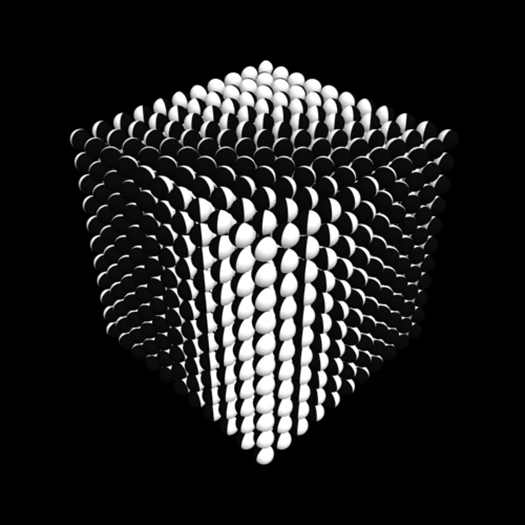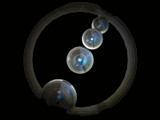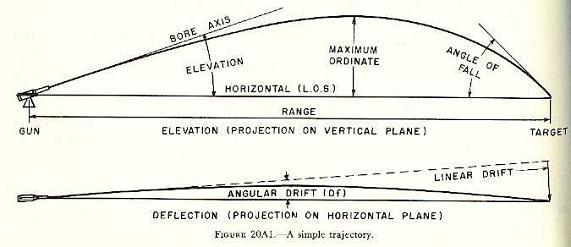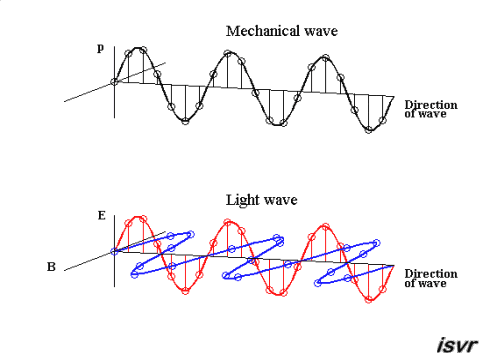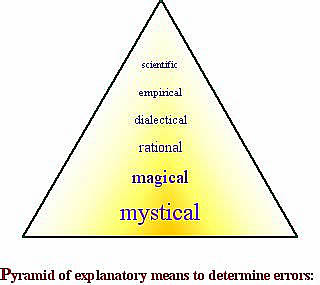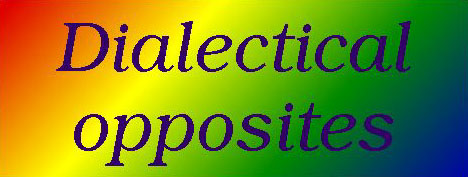 Scientific perception
Scientific perception

not objective | perceive what exactly? | always suspect | energy | examples | subjects
"A study of how science functioned in the past."
"Science has made a determined bid to become the chief source of knowledge in modern society. . .
we should be aware of the ideologically loaded basis for its assumed objectivity."
Peter J. Bowers, The Earth Encompassed, p. 31.
"We must be prepared to to acknowledge the complexity of the philosophical and ideological factors that have shaped the emergence of modern attitudes…. There is never a single coherent philosophy or ideology determining the scientific perspective of any historical period."
not objective | perceive what exactly? | always suspect | examples | subjects
"Science is not a purely objective study of the world, but scientific knowledge cannot be dismissed as a mere figment of the scientist's imaginations."
Bowers, p. 30.
A process that mediates between
1. creative thinking -- stimulated by host of cultural factors,
2. their efforts to observe and interpret the external world."
Bowers, pp. 30-31.
Bowler argues that findings are not " A mere figment o of the scientist's imagination."
Perception is a problem.
Ballistics was a practical art of siege warfare that propelled Renaissance practitioners to advance mathematics and the science of statics.
The uses of proportional drawing or "line drawings" altered how we perceived external forms.
Photograph altered what we could see.
"Some of the images made visible by modern science are at once so arresting and so beautiful that they have come to be regarded as supremely representative of natural forms and processes."
p. 78. Kemp, Visualizations .
1. So one limitation on scientific perception is that it rests on what it is scientists pay attention to and who pays them to pay attention to those

![]() This photograph is of a single celled plant called a diatom, may not appear as important as it actually is to all life on earth.
This photograph is of a single celled plant called a diatom, may not appear as important as it actually is to all life on earth.
So science is a method of finding things out about what we perceive, but cannot explain because we do not know.
This method is based on the principle that observation is the judge of whether something is or is not.”
“Observation is the ultimate and final judge of the truth of an idea.”
“prove really means test.”
‘the exception tests the rule.”
Feynman, Page, 15.
“This freedom to doubt is an important matter in the sciences
28
“It was a struggle to be permitted to doubt, to be unsure.”
Feynman, Page, 28.
| Freedom to doubt for example Galileo. | ||

|
||

|
||
Freedom to doubt for today.
or
“On a more hopeful note, he continued, ‘We can never reverse the degradation of many ecosystem services over the next 50 years, but the changes in policy and practice required are substantial and not currently underway.”
Ehrlich & Ehrlich, p. 330.
“the energy problem brings together many crucial issues in the human predicament. The great speed of evolution in the technological dimension of our culture has led to the deployment of a dangerous and unsustainable global energy infrastructure.”p. 308.
Imperative – the necessity of acting differently because we are perceiving the world differently:“Global climate change not only modifies the environment in which organisms are evolving genetically: it can have a major impact on our human cultural evolution as well.”
p. 254.
Energy – what is needed in the least amount to achieve outcomes?
“Energy, the ability to effect change in our physical world.”. 290.
Saving natural assets and natural capital – microbes create interest on solar & geothermal accounts that sustain living communities of plants and extremophile bacteria.
| The study of: | ||
 |
||

|
||
| list of subjects |
Sources:
Bowers, Peter J. The Earth Encompassed, pp, 1-31.
Ehrlich, Ann and Paul. The Dominant Animal.
Feynman, Richard P. The Meaning of It All: Thoughts of a Citizen-Scientist.
Hardin, Garrett. Living within Limits.
Kemp, Martin. Visualizations.
Miller, G. Tyler. Environmental Science.
Related pages listed alphabetically
A | C | D | E | H | O | S| T | W
5 scientific revolutions, what are they and why did they change what we think about the world?
5 kingdoms of life (or 6?) what is the relation among plants, bacteria, fungus, monera, animals, and the phylum of archaeozoans?
Abrupt Climate Change, its here and its queer and we better get used to it, in the sense which J. B. S. Haldane suggested that "Nature is not only queerer than we think, but it is queerer than we can think."
Aspects and Character of scientific findings
Bachelard's paradox about rationalism and realism (experimentation).
Bacon's idols (four idols) define for this thinker, what were the prevailing and persistent obstacles to humans understanding?Bainbridge on Sex, why there is more to gender than just genes and X or Y chromosomes.
Bias.
Biological diversity examined in some detail
Century
of the Gene, E. F. Keller on genetics and
a search for meaning.
Changes in science
Changes in the life sciences, and index.
Chelonian Institute, Oviedo, Fl.
Coastal conservation and design
Coast's, a question of change
Complexity.
Complexity theory and Murray Gell-Mann theoretical physicist at Cal. Tech. theorized about quarks in protons and neutrons,
Darwin's mind, changes in his thinking.
Darwin's Origin of Species
Darwin's relation to ecology
Darwin, Who was he?
Darwin, index to pages about natural selection and his finding.
Defining diversity, simply and what is biological diversity examined in some detail, especially the varieties of diversity measures.
dialectical methods
Dimensions
Double
Helix, James Watson's book of discovery.
A | C | D | E | H | O | S| T | W
Ecology and chemical contamination
ecological model
Einstein's
thoughts about research and society.
Estuarine
sciences, development of
Evolution
was Charles Darwin's revolution
Feynman, Richard: The Meaning of it All
Focus of scientific study, Foci that characterize science: measurement, reliable information, accuracy, doubt, tested, reinforced, modified, discarded, critical, skeptical.
Galileo
Gell-Mann, Murray: The Quark and the Jaguar
Genetics
Genome,
unseen aspects by Wyatt Gibbs
geography
Geological
time
Geology and geography index
Global Warming
Hooke, Robert
Human Genome
Kaku, Michio
Beyond Einstein
Hyperspace
Visions
Kuhn, Thomas on scientific
revolutions
Antoine Lavoisier
laws of ecology
Richard Lewontin
on genetics
Life Sciences, changes
in
Litani River, Lebanon
Living
Downstream, ecology and cancer
Leo Marx
machine, four parts of
Malthus, on population
Mangrove swamps
Margulis on our symbiotic planet
Matter, organization of
Margulis, Lynn Symbiosis in Ecosystems
Is the Planet symbiotic?
Method, scientific pyramid of how we know.
Miller, G. Tyler
Museums
to virtually visit.
Neurosis
and Human Growth, Karen Horney
Sir Isaac Newton
Newtonian and Darwinian Revolutions
A | C | D | E | H | O | S| T | W
Ockham's Razor, the importance of avoiding pleonasm in your writing
 On the Origin of Species (1859)
On the Origin of Species (1859)
notes on Darwin's book
Patterns
Radiant energy
Real
versus ideal in knowing reality
Research
Guide to other web sites for useful information for writing assignments.
Research institute for wildlife, turtles and world conservation.
Research;
reliable sources on the internet for you to use.
Round River, Leopold
rules
of ecology; simply stated
Scale
and levels of organization in nature.
Science
is defined and analyzed here as one of several linked pages. Science
is not however technology, though they are related.
Science
and disease, related ideas on order and disorder.
Science
Method, some surprising admissions from contemporary practitioners.
Symbiotic
Planet, Lynn Margulis
A | C | D | E | H | O | S| T | W
A Taste for Country
Ian Tattersall, on science and how we humans & monkeys are so close as to be largely similar in our DNA, inheritance, not to mention behavioral responses to the world.
Technology is discussed and examined as the means
we have to solve the apparent difference between an existing and a desired
state of affairs or conditions.
Technology is defined here as the application
of knowledge to human affairs.
The
Triple Helix, by Richard Lewontin
Thinking like a Mountain, Aldo Leopold on wildlife ecology
Lewis Thomas, The Lives of a Cell
Tools
are the items used to identify and understand the power of technology
and the techniques we use. Some synonyms for tool's are: apparatus, devices,
gadgets, implements, instruments, machinery, materials, robots.
Uncertainty
in science, a valued role to play.
Unity
of Nature, view of the natural sciences
Unseen
Genome, by Wyatt Gibbs
James Watson's, The
Double Helix
Writing: Writing
about Science as a means to measure your critical thinking.
Words; the importance of accurate expression and
the appropriate choice of terms is examined here. Eight of the most important
terms for my courses are defined here, as well as on other pages.
Worldviews, complex associations of personal and social constructions of how the world works compared to its actual conditions of existence.
World, the; as a scientific problem with political obstacles.
A | C | D | E | H | O | S| T | W
Terms | Glossary | Word webs | Basic vocabulary| Advanced Vocabulary | Antonyms | Synonyms
Base
.gif)

